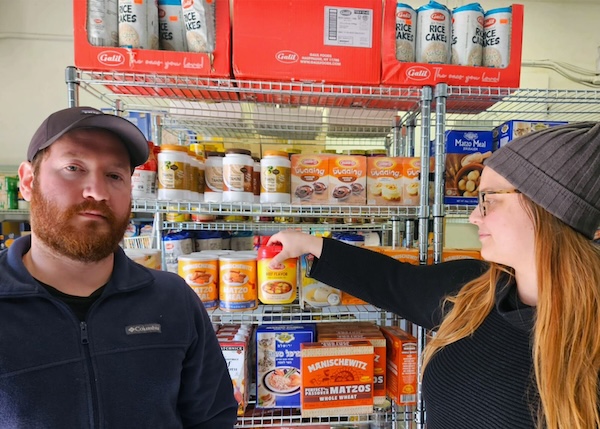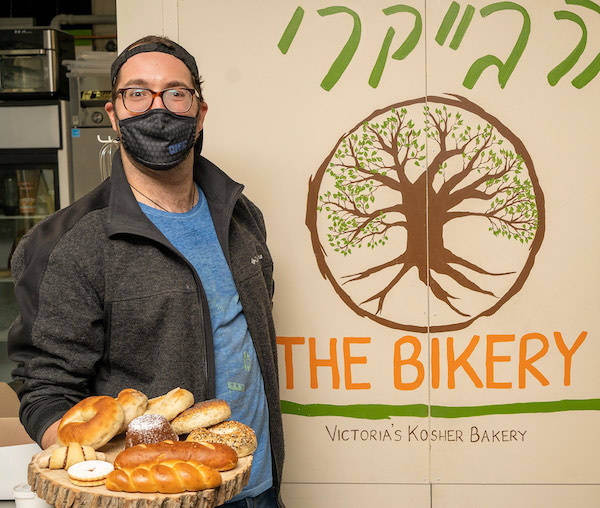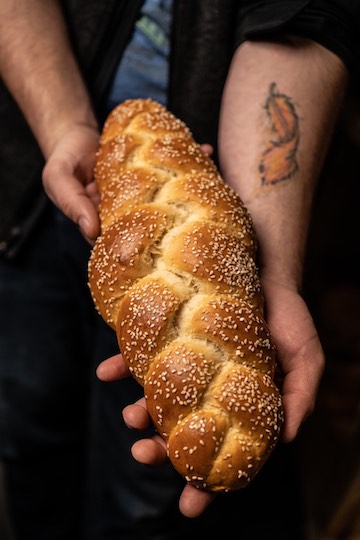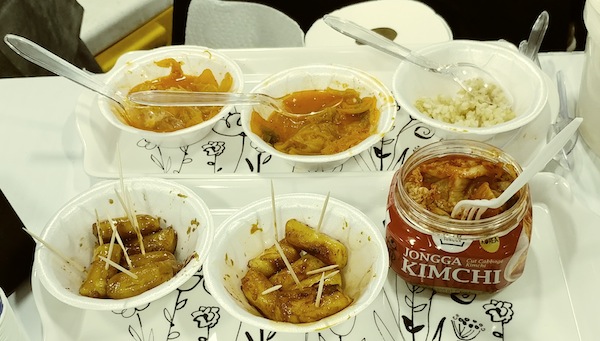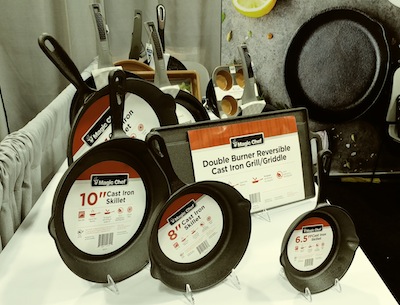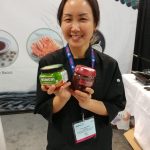In his book Kosher: Private Regulation in the Age of Industrial Food, American author Timothy Lytton recounts an old rabbinic joke featuring two mythical creatures created by God at the dawn of time: the Behemoth, a giant ox, and the Leviathan, a giant fish. In the joke, a rabbi explains to his students that, at the End of Days, when the Messiah arrives, there will be a feast and God will slaughter the Behemoth to feed the entire world. The Leviathan will also be slaughtered at the same time, and it too will be used to feed the entire world.
“But rabbi,” one of his students asks, “if the Behemoth can feed the entire world, why also slaughter the Leviathan?”
“Because there will be those who won’t believe the Behemoth is kosher, so they will be able to eat fish,” the rabbi answers.
Clearly, disputes over kashrut go back a long way and, if there’s any truth to the joke, the Messiah’s arrival might not resolve the matter.
Lytton, a professor of law at Albany Law School, told the CJN that the current certification system in North America, in which a handful of big players effectively dominates the market, developed as a result of widespread corruption and uncertainty in the kosher food market in the early days of the 20th century. Things then were so bad that people had no confidence that the food they might consume was actually kosher. Many kosher-observant Jews simply stopped eating meat, because they did not trust any certification.
Standards began improving 50 or 60 years ago and, today, industrial producers of all sorts of foods eagerly seek out kosher certification for entry into a desirable market. But rivalries among certification agencies can have a negative effect, Lytton writes.
“Personal animus and institutional rivalries can skew judgments about reliability. Information networks and supply-chain influence can be used to poach clients and stifle competition.
“Too many rivalries and accusations can spill over and create a public perception and a consumer response that is bad for both sides.”
“If the competition gets too bad or nasty, it tends to degrade the reputation of kosher supervision overall.”
Kosher certification agencies are “hostages of each other…. If the competition gets too bad or nasty, it tends to degrade the reputation of kosher supervision overall. If the nastiness gets bad enough, the history of kosher certification suggests that it will be bad for the public reputations of all the certifiers. There’s a long history in kosher certification of rabbis running each other down and, if they do it in public, the public won’t trust any of them,” he said.
One solution to infighting among certification agencies is being considered in Israel. Naftali Bennett, the country’s economy and trade minister, who also serves as minister for religious services, recently announced plans to introduce a three-tier system that aims to make certification easier for restaurants and their patrons. According to the Times of Israel, Bennett’s system would award food-producing establishments with one to three stars, indicating their level of adherence to Judaism’s dietary laws.
“Each business or company can decide how many stars it wants,” Bennett said.
The new approach would also revise the system of funding for certifications. Currently, food establishments pay for their own supervision, a practice that has drawn criticism for creating potential conflicts of interest for inspectors. The new reform proposes a third-party body that would handle the financial side of the kashrut supervision. However, the Times of Israel reported that there was plenty of criticism of the new government plan.
Shahar Ilan, deputy director of Hiddush, an Israeli nonprofit organization that promotes religious freedom and equality, said Bennett’s arrangement would maintain the state rabbinate’s monopoly over the kashrut system instead of opening it up to the free market. He called on authorities to encourage kashrut liberalization, including non-religious, Reform and Conservative kosher certifications, enabling consumers to choose to be kosher according to their own beliefs.
Lawrence Lax, a kosher consumer and an addiction counselor by profession, has his own suggestions about reforming kosher supervision in Toronto. He suggests that the Kashruth Council of Canada, which administers the COR hechsher and is known by that name, faces “a conflict of interest” in its operations – though different than the one centred on the way mashgichim are paid.
“On the one hand, they have to be of service to the people they work with in the food industry,” Lax said. “On the other hand, they have to make it possible for us to have kosher food at good prices.”
He suggested that COR use its market clout to negotiate better prices for meat. He also proposed that COR should transition into a community service organization; that it “age-out senior salaries” when older employees retire and turn over most mashgiach services to young men coming out of yeshivot, who wouldn’t command large salaries.
COR declined to answer the CJN’s questions. It published an open letter, in which it described itself as being “dedicated to serving our community.”
“COR is a not-for-profit organization and all fees collected go towards covering our operations and providing services to the community. In the food service division (i.e. restaurants and caterers) we actually operate at a financial deficit – our expenses are greater than our fees. We are able to marginally compensate for this loss from our other divisions. Customers choose COR because they know that we are reliable, we provide professional service and our prices are in line with the other major kosher certifiers,” the letter stated.
COR, however, has adopted the practice being criticized in Israel – it permits restaurants, caterers and suppliers to employ mashgichim directly, though they report to COR and are under the supervision of COR personnel.
Moti Bensalmon, a spokesman for Badatz Toronto, a kosher certification agency founded in 2008, said, “The conflict of interest whereby a mashgiach is paid directly by a business is finally going to end in Israel. Any agency allowing mashgichim to be paid by ownership loses its credibility in today’s world.”
Referring to other Israeli proposals for reform of its kashrut certification system, Bensalmon rejected the idea of a three-tiered approach.
“I believe a three-tiered system is bad here and in Israel. What we need to strive for is a solid one-tier system that is acceptable to everyone. This means that the Charedim and Modern Orthodox should negotiate unified minimum standards and apply them to everyone.
“What Bennett is trying to do is undermine the legitimate operations of the private hechshers and have the government be the sole certifier of kashrut.”
“If a restaurant or caterer wants a higher level of supervision, there are many reputable private hechsherim that can fill the void. What Bennett is trying to do is undermine the legitimate operations of the private hechshers and have the government be the sole certifier of kashrut.
“I believe the best way to move forward is for the Israeli Rabbanut to be more of a governing body for all hechshers. In order to provide kosher certification, the nongovernment hechshers would have to be accredited by the Rabbanut, meet certain standards, regulate their business practices and treat their mashgichim with fairness.
“This would also eliminate the back-room deals and put an end to agencies blocking each others’ products from entry into their establishments. This is the real solution, and it will open the hashgachah market up to more real and fair competition, which would eventually bring all prices down,” he said.
As to Badatz’s disputes with COR, Bensalmon said, “Everywhere there is a large Jewish community like Toronto, there are multiple kashrut agencies. It’s a fact of life that the COR must come to terms with. We harbor no ill will to the individuals running COR in any way. We would like to run our organization without interference from COR and vice versa.
“We have reached out to them multiple times and tried to have meaningful discussions centred on having two organizations operate by the same sets of rules in Toronto. Their position we were told is that the only solution is to join COR under their leadership and administration. As we see in other parts of the world, it’s difficult to reach an agreement with people who harbor those views.”
– For more national Jewish news, visit cjnews.com.

